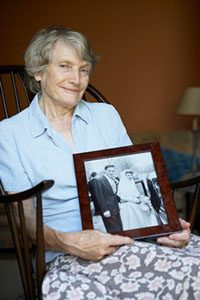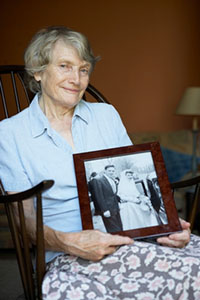 Filled with a lifetime of experiences and wisdom, Huntsville seniors are a treasure trove of storytelling magic.
Filled with a lifetime of experiences and wisdom, Huntsville seniors are a treasure trove of storytelling magic.
We’ve all experienced how precious an old photograph or a diary belonging to a loved one becomes after they are gone. We all hope to see many more years of living ahead of us, but tomorrow is never a guarantee for any of us, regardless of our age.
By writing down the stories of our lives, we can not only leave behind a piece of ourselves for family to treasure but also contribute our account to the larger record – just like the quotes we read from people living in the past give a human context to historical events, helping us to realize that while technology and attitudes may evolve over the centuries, people still feel the same emotions and face similar challenges.
Huntsville’s rich history with the space program and as a transportation hub for the region provide the backdrop for stories about working at NASA, going off to war, viewing man step foot on the moon, experiencing the collective joys and tragedies of life in the Tennessee Valley from an individual point of view. Just think of the enriching information we find today about Civil War and railroad history at the EarlyWorks Museum and the Huntsville Depot and Museum.
Now is the time for seniors to give an oral or written history of their lives, either on audiotape, on video, written down, or dictated to a loved one. There are also organizations like StoryCorps that exist to help people get these accounts captured for the historical record. They make a particular effort to record talks with seniors facing the onset of dementia.
To save the best stories for future generations to enjoy, here are a few suggestions from the experts:
- First, don’t think of your life story as a huge project, even if it has been larger-than-life at times. Individual stories are better than long, drawn-out tales. You can connect the dots between events, but certainly don’t avoid starting because the idea of finishing seems intimidating. Individual stories of the time you appeared on television or won a contest are easier to consume than long-winded expositions on life as a whole. However, as the author of your life story, you get to make such choices.
- Secondly, facts alone can be boring. Put them into context by expressing how actions and events affected you or led to consequences down the road. Was your job the fulfillment of what you dreamed of doing as a child? Did something happen that changed the course you were on in life? Did a teacher or a friend do or say something that impacted you? Life, by its nature of metaphorical hills and valleys, is dramatic enough, even if it fails to rival Forest Gump’s epic stories.
- Third, what are the lessons you gained from enduring moments of adversity? Family benefits from understanding how those who came before survived hardships, drawing strength and reaffirming values. Those tracing their ancestry will no doubt appreciate the color commentary on being alive in the modern period.
- Four, don’t feel limited to words. A song you loved singing in the church choir is as much a part of who you’ve been as a story.
Entertaining stories are not merely the recitation of information. The best ones appeal to our senses and put our mind’s eye in the room with the teller by engaging our imaginations. Your grandchildren, having never experienced you as a young person, may find it interesting to know what it was like to experience your own first kiss, your own first day on a new job, your own struggles and triumphs.
Huntsville seniors have much wisdom to contribute and can share the riches that lie within them by passing along such stories in a memoir or journal that will become a priceless family heirloom someday.

